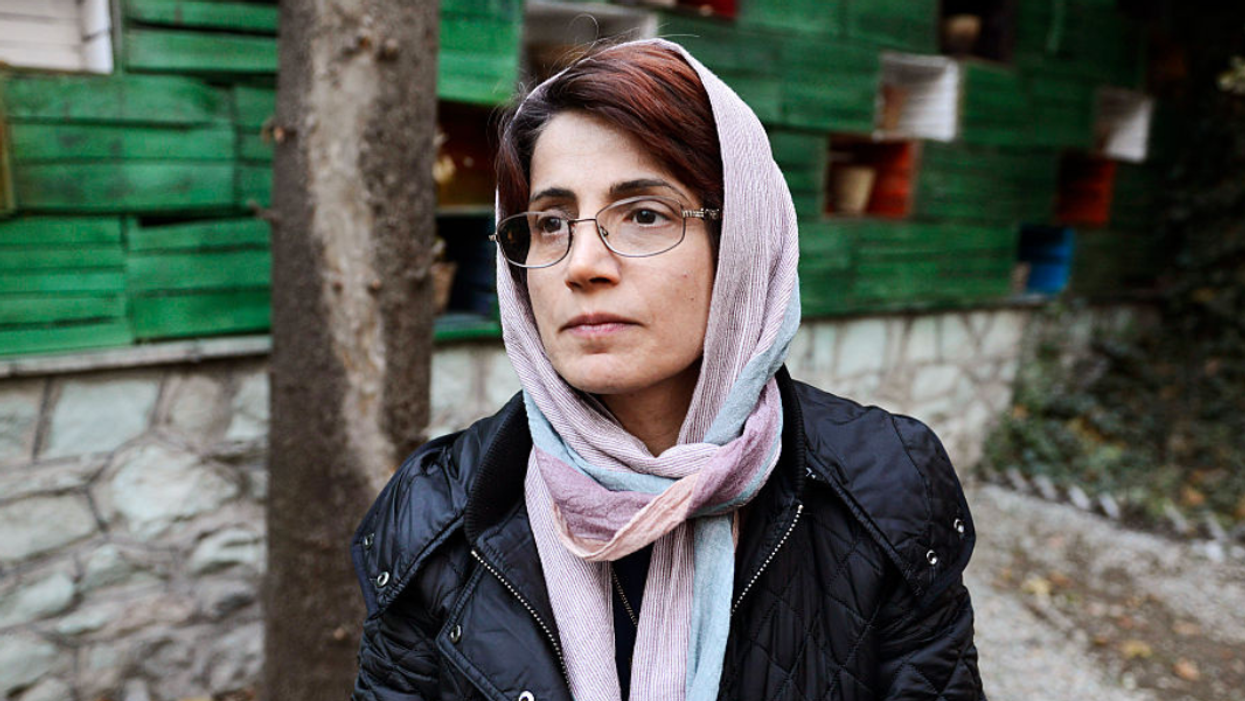Nasrin Sotoudeh, an Iranian lawyer and human rights activist who has been called “ Iran’s Nelson Mandela ” will receive the 2023 Brown Democracy Medal from the McCourtney Institute for Democracy, marking the award's 10th year.
Sotoudeh has dedicated her legal career to representing opposition activists in Iran, minors facing unfair sentences and women who protested Iran’s mandatory hijab law. Her clients have included Nobel Peace Prize laureate Shirin Ebadi and pro-democracy activist Heshmat Tabarzadi.
Because of this work, Sotoudeh has been repeatedly imprisoned by the Iranian government for crimes against the state. She served one sentence from 2010-13 and was sentenced again in 2018 to 38 years and six months in prison and 148 lashes.
“I am deeply touched by the love and kindness that’s behind the Brown Democracy Medal,” Sotoudeh said. “Those of us who are working for democracy in Iran are not doing anything that’s particularly exceptional or distinguished. What is exceptional are the obstacles we’re confronting in Iran.”
Sotoudeh is also a longtime opponent of the death penalty. She co-founded the organization Campaign for Step By Step Abolition of the Death Penalty in 2013 to advocate for legislation that would abolish capital punishment in Iran. In 2022, she received the Robert Badinter Award at the 8th World Congress Against the Death Penalty.
In October 2020, Sotoudeh launched a 46-day hunger strike to protest poor health conditions and the risk of COVID-19 in Iranian prisons. She is currently on medical leave from prison but could be called back at any time.
“This award is as a recognition of the broader movements in Iran for democracy and the role women are playing in that regard,” Sotoudeh said. “Democracy is something that has a global meaning and resonance. We need to move the understanding from East to West and be united in protecting this sacred legacy.”
Chris Beem, McCourtney Institute acting director and associate research professor of political science, said Sotoudeh shows the world what it means to stand up for democracy under the most difficult circumstances.
“Nasrin Sotoudeh’s courageous work defending human rights and the rule of law in Iran are grounded in her equally unshakable commitment to democracy, Beem said. “That is why she is so worthy of the Brown medal; she is an inspiration to democrats all over the world.”
Sotoudeh will not be able to travel to University Park to receive the Brown Medal. Filmmakers Jeff Kaufman and Marcia S. Ross, who made the 2020 documentary “Nasrin, ” will accept the award on her behalf at the medal ceremony on Oct. 26.
Kaufman and Ross have known Sotoudeh since 2016 and said they will be honored to share her story with the Penn State community at the award ceremony. In 2021, Kaufman wrote that Sotoudeh reminds him of a young John Lewis leading a march across the Edmund Pettus Bridge in Selma, Alabama.
“Nasrin is a courageous supporter of religious and ethnic minorities,” Kaufman said. "This is a key element that made me want to do the documentary, and it’s one of the reasons she is a great role model for America.”
As part of receiving the Brown Medal, Sotoudeh will write a book about her work and the connection between human rights and democracy that will be published this fall by Cornell University Press.
Established in 2014, the Brown Democracy Medal is funded by Larry and Lynne Brown to recognize new and innovative scholarship or practice in democracy. Both are Penn State alumni, and Larry is chair of the McCourtney Institute’s Board of Visitors.
The award’s previous recipients include the States United Democracy Center, Desmond Meade, executive director of the Florida Rights Restoration Coalition, and Srdja Popovic, founder of the Center for Applied Nonviolent Actions and Strategies.
For more information, visit https://www.nasrinfilm.com/freedom-button.




















Trump & Hegseth gave Mark Kelly a huge 2028 gift